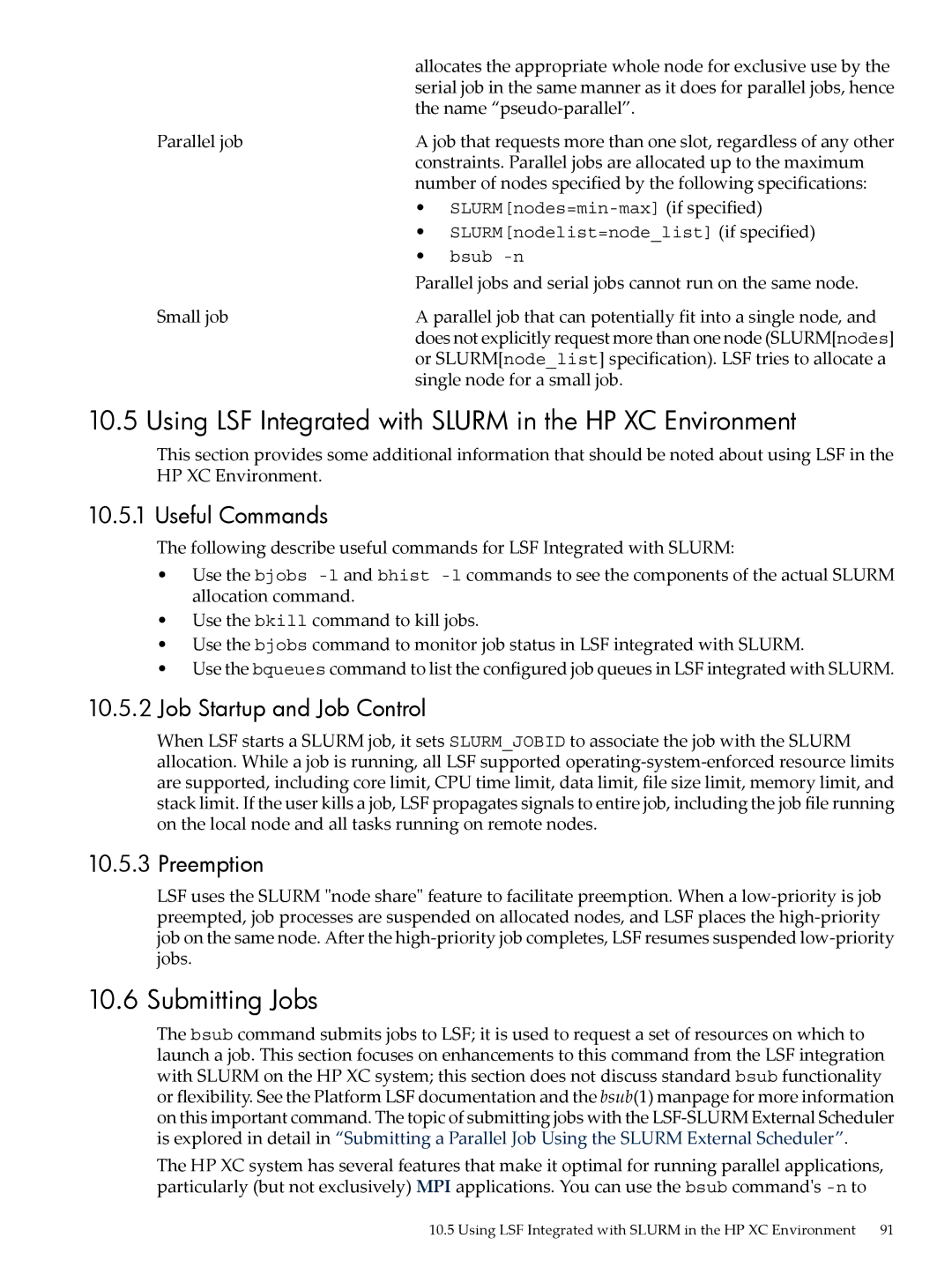| allocates the appropriate whole node for exclusive use by the |
| serial job in the same manner as it does for parallel jobs, hence |
| the name |
Parallel job | A job that requests more than one slot, regardless of any other |
| constraints. Parallel jobs are allocated up to the maximum |
| number of nodes specified by the following specifications: |
| • |
| • SLURM[nodelist=node_list] (if specified) |
| • bsub |
| Parallel jobs and serial jobs cannot run on the same node. |
Small job | A parallel job that can potentially fit into a single node, and |
| does not explicitly request more than one node (SLURM[nodes] |
| or SLURM[node_list] specification). LSF tries to allocate a |
| single node for a small job. |
10.5 Using LSF Integrated with SLURM in the HP XC Environment
This section provides some additional information that should be noted about using LSF in the HP XC Environment.
10.5.1 Useful Commands
The following describe useful commands for LSF Integrated with SLURM:
•Use the bjobs
•Use the bkill command to kill jobs.
•Use the bjobs command to monitor job status in LSF integrated with SLURM.
•Use the bqueues command to list the configured job queues in LSF integrated with SLURM.
10.5.2Job Startup and Job Control
When LSF starts a SLURM job, it sets SLURM_JOBID to associate the job with the SLURM allocation. While a job is running, all LSF supported
10.5.3 Preemption
LSF uses the SLURM "node share" feature to facilitate preemption. When a
10.6 Submitting Jobs
The bsub command submits jobs to LSF; it is used to request a set of resources on which to launch a job. This section focuses on enhancements to this command from the LSF integration with SLURM on the HP XC system; this section does not discuss standard bsub functionality or flexibility. See the Platform LSF documentation and the bsub(1) manpage for more information on this important command. The topic of submitting jobs with the
The HP XC system has several features that make it optimal for running parallel applications, particularly (but not exclusively) MPI applications. You can use the bsub command's
10.5 Using LSF Integrated with SLURM in the HP XC Environment 91
